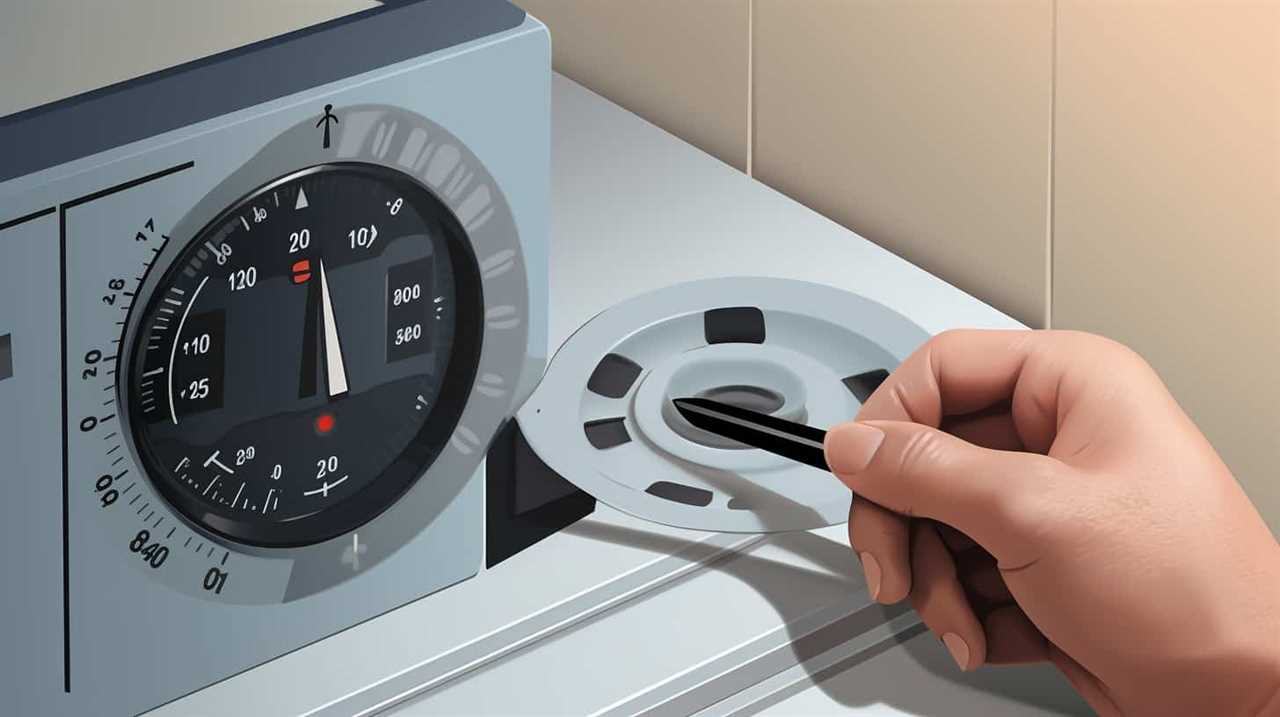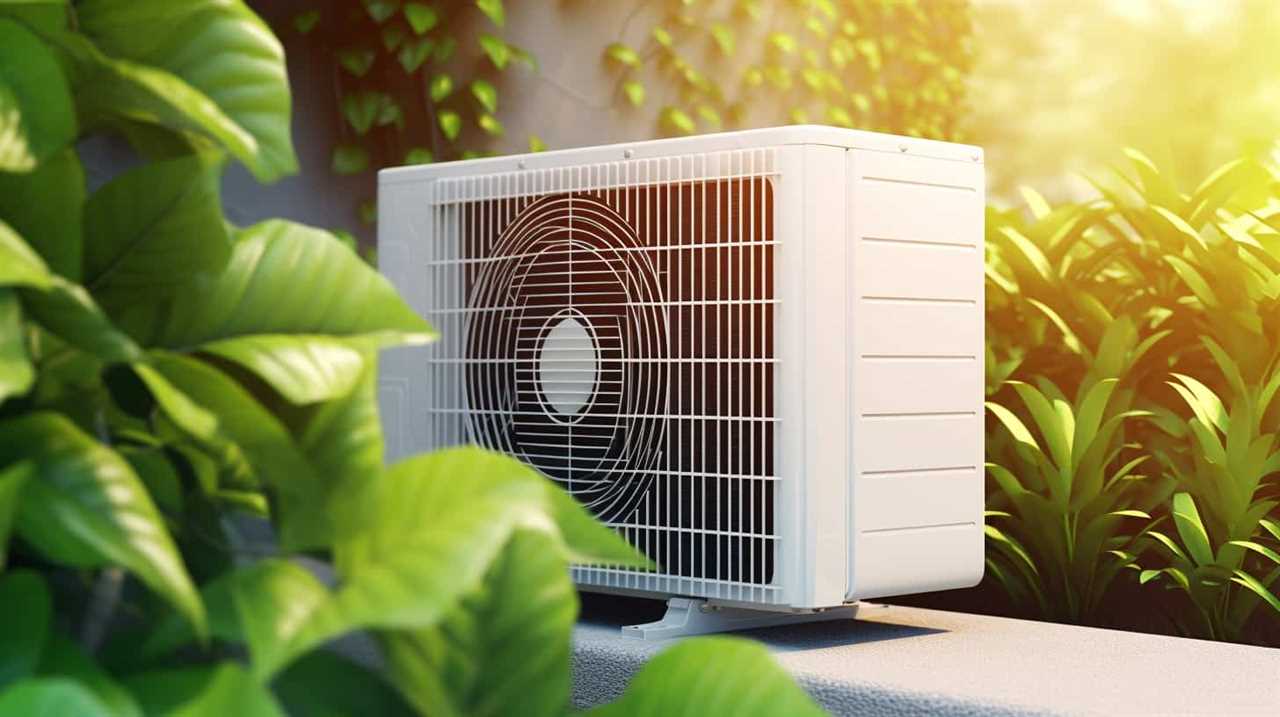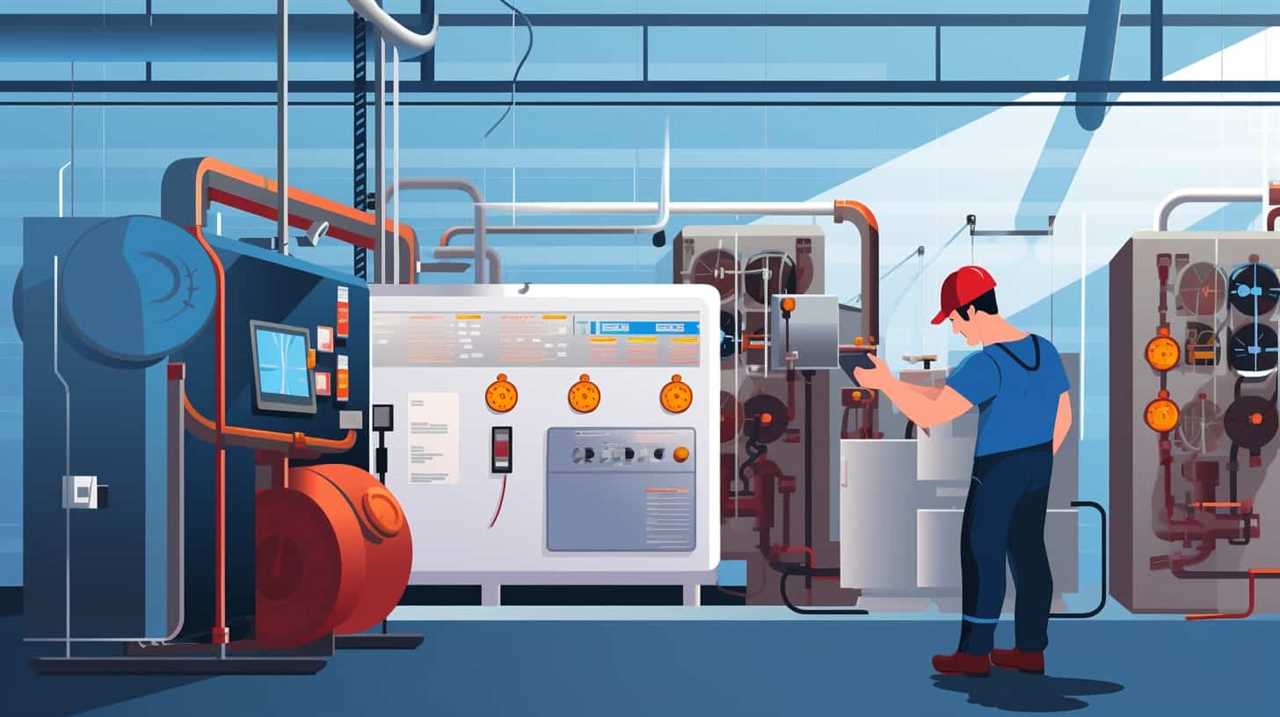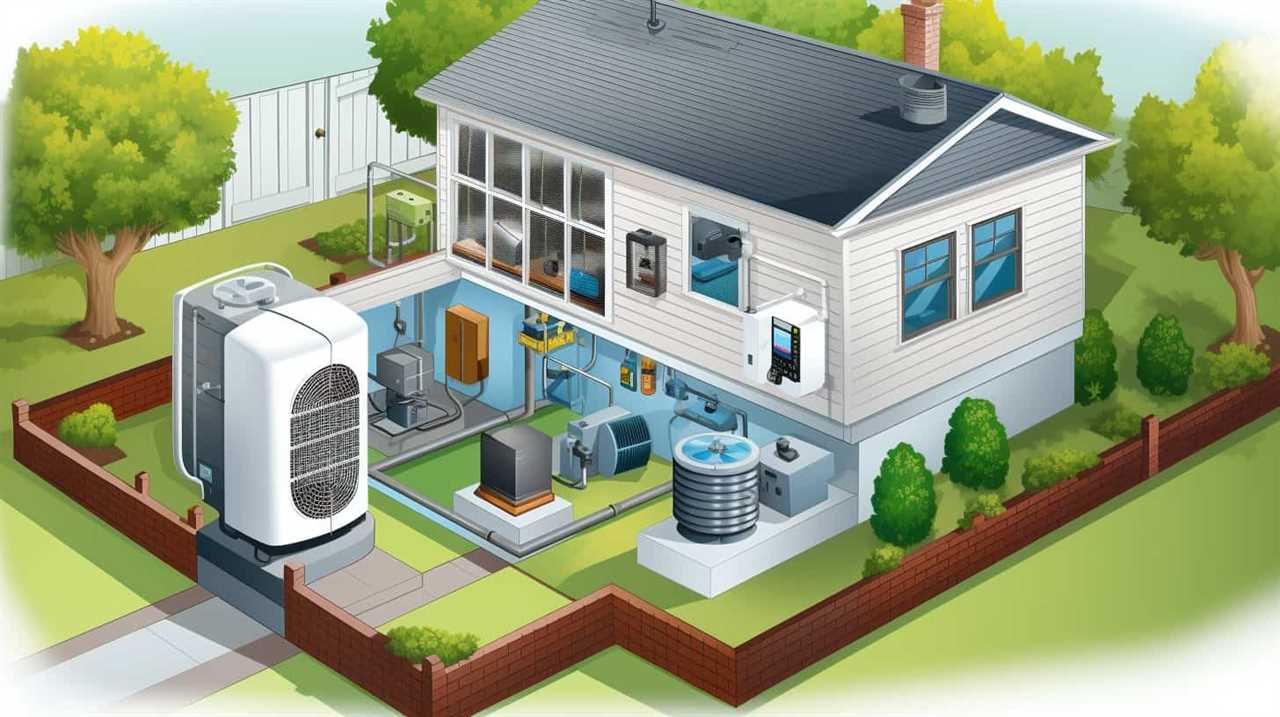We’ve heard the rumors, but let’s clarify the facts. Heat pumps are not energy hogs, and they do not harm the environment. In reality, these systems are extremely efficient and provide a variety of environmental advantages.
In this article, we’ll compare heat pumps to traditional heating systems, explore their energy consumption, and debunk any misconceptions about their environmental impact.
Get ready to bust some myths and discover the truth about heat pumps.
Key Takeaways
- Heat pumps are highly efficient and can produce up to three times the energy they consume.
- Heat pumps have a lower environmental impact compared to traditional heating systems, as they transfer heat from renewable sources instead of using fuel.
- Mitigating the environmental impact of heat pump energy use can be achieved through increasing energy efficiency, transitioning to renewable energy sources, implementing smart grid solutions, and proper disposal of heat pumps.
- Heat pumps are often misunderstood, but they are symbols of energy efficiency and environmental friendliness, with clear evidence of their energy-saving capabilities.
Energy Efficiency of Heat Pump Systems
Are heat pump systems energy efficient? When it comes to heat pump technology, the answer is a resounding yes. These systems are designed to extract heat from renewable energy sources, such as the air, ground, or water, and transfer it into your home. This process requires minimal energy input, making heat pumps highly efficient.

In fact, studies have shown that heat pumps can produce up to three times the energy they consume, resulting in significant energy savings. This not only reduces your carbon footprint but also translates into lower energy bills.
With their ability to harness renewable energy sources effectively, heat pump systems offer a sustainable solution for heating and cooling your home.
Now, let’s delve into the environmental benefits of heat pumps, which go hand in hand with their energy efficiency.
Environmental Benefits of Heat Pumps
As we explore the environmental benefits of heat pumps, it becomes evident that these systems contribute to a greener and more sustainable future. Here are four key reasons why heat pumps are environmentally friendly:

-
Carbon Footprint Reduction: Heat pumps operate by transferring heat from the air or ground, rather than burning fossil fuels. This significantly reduces carbon dioxide emissions, which are a major contributor to climate change. By choosing a heat pump, you can make a tangible impact in reducing your carbon footprint.
-
Renewable Energy Integration: Heat pumps can utilize renewable energy sources such as solar or wind power to operate. This allows for the integration of clean and sustainable energy into the heating and cooling process, further reducing reliance on non-renewable resources.
-
Energy Efficiency: Heat pumps are highly efficient, converting a small amount of energy into a larger amount of heat. This means they require less energy to operate compared to traditional heating systems, resulting in lower energy consumption and reduced environmental impact.
-
Air Quality Improvement: Heat pumps don’t produce any emissions or pollutants on-site, resulting in improved air quality both indoors and outdoors. This is particularly beneficial for individuals with respiratory conditions or allergies.

Considering these environmental benefits, heat pumps offer a promising solution towards a more sustainable future. Now, let’s delve into how they compare with traditional heating systems.
Comparing Heat Pumps With Traditional Heating Systems
Let’s compare heat pumps with traditional heating systems to understand their differences. When it comes to energy consumption, heat pumps are more efficient than traditional heating systems. They work by transferring heat from the outdoor air or ground into the home, rather than generating heat from a fuel source. This allows them to use less energy and reduce greenhouse gas emissions. In terms of cost, heat pumps may have a higher upfront investment, but they can save you money in the long run due to their lower energy consumption. To better illustrate the differences, here’s a comparison table:
| Category | Heat Pumps | Traditional Heating Systems |
|---|---|---|
| Energy Consumption | Lower | Higher |
| Cost | Higher upfront, lower long run | Lower upfront, higher long run |
| Environmental Impact | Lower | Higher |
Now that we’ve compared heat pumps with traditional heating systems in terms of energy consumption and cost, let’s explore how we can mitigate the environmental impact of heat pump energy use.
Mitigating the Environmental Impact of Heat Pump Energy Use
To reduce the environmental impact of heat pump energy use, we can implement various strategies. Here are four key approaches to consider:

-
Increasing energy efficiency: By improving the efficiency of heat pump systems, we can reduce the amount of electricity needed to operate them. This can be achieved through advanced technologies, regular maintenance, and proper insulation of buildings.
-
Transitioning to renewable energy sources: Shifting towards renewable sources such as solar or wind power can significantly decrease the emissions associated with heat pump energy use. By utilizing clean energy, we can minimize the environmental footprint and contribute to a more sustainable future.
-
Implementing smart grid solutions: Integrating heat pumps into smart grids enables better management of energy demand and supply. This allows for optimized energy usage, reducing emissions and maximizing the efficiency of the overall system.
-
Promoting responsible heat pump disposal: At the end of their lifespan, heat pumps should be properly disposed of to prevent environmental harm. Recycling components and disposing of hazardous materials in an environmentally friendly manner is crucial for reducing the overall impact.

Debunking Misconceptions About Heat Pump Energy Consumption
We often hear misconceptions about heat pump energy consumption, but let’s debunk them with facts and evidence.
One common misconception is that heat pumps consume a lot of energy. However, modern heat pump technology has greatly improved its performance and efficiency. Heat pumps are designed to transfer heat from one place to another, rather than generating heat through combustion like traditional heating systems. This makes them highly efficient and energy-saving. In fact, heat pumps can provide up to four times the amount of energy they consume.
Another misconception is that heat pumps aren’t suitable for cold climates. This isn’t true, as there are heat pump models specifically designed for cold weather conditions, equipped with advanced energy-saving technologies such as variable-speed compressors and improved defrost cycles. These advancements ensure optimal performance even in freezing temperatures.
Frequently Asked Questions
Can Heat Pumps Be Used in Areas With Extreme Climates?
Yes, heat pumps can be used in areas with extreme climates. They are effective in both desert regions and polar regions, providing efficient heating and cooling solutions regardless of the temperature extremes.

Are Heat Pumps Suitable for Both Residential and Commercial Buildings?
Yes, heat pumps are suitable for both residential and commercial buildings. They offer high efficiency and can significantly reduce energy costs compared to traditional heating and cooling systems.
How Long Do Heat Pumps Usually Last Before Needing to Be Replaced?
Heat pumps typically last around 15-20 years before needing to be replaced. Common signs of replacement include reduced efficiency, frequent breakdowns, and increased energy consumption. Regular maintenance can help extend their lifespan.
Do Heat Pumps Require Regular Maintenance?
Yes, heat pumps require regular maintenance to ensure optimal performance and extend their lifespan. Regular maintenance includes cleaning and inspecting the system, checking refrigerant levels, and replacing filters.
Are There Any Government Incentives or Rebates Available for Installing Heat Pump Systems?
There are government incentives and rebates available for heat pump installations. They can help offset the initial cost and promote the use of energy-efficient systems, making them a more viable option for homeowners.

Conclusion
In conclusion, it’s clear that heat pumps are a highly energy-efficient and environmentally friendly alternative to traditional heating systems.
Through careful analysis and evidence-based research, we’ve debunked misconceptions surrounding their energy consumption.
By choosing heat pumps, we can make a positive impact on the environment while enjoying the benefits of efficient heating.
Let’s embrace this technology and contribute to a greener future for generations to come.










